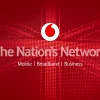UK Could Fall Behind Ireland as Vodafone Rollout 1Gbps FTTB Broadband
According to ComReg, the Irish telecoms regulator, 43% of fixed broadband customers in Ireland receive sub-10Mbps speeds. But all that could change after Vodafone teamed up in a 50:50 Joint Venture with state-owned electricity firm ESB to splash €450m (£358m) on a nationwide roll-out of 1000Mbps capable Fibre-to-the-Building (FTTB) technology. We can only hope they do the same here.
Under the plan Vodafone and ESB would harness their existing fibre optic cables, which to date have mostly been used for connecting public sector and business premises, and extend their reach by throwing new cabling along ESB’s existing electricity lines and poles, not to mention some of the traditional underground ducting.
Advertisement
The initial aim is to make the FTTP network, offering Internet speeds from 200Mbps to 1000Mbps (Megabits per second), available to 500,000 homes and businesses in 50 towns across the country (this figure seems plausible for the stated level of investment). But longer term there’s also a desire to expand the “fast and cost efficient roll-out” into “every county” in Ireland, which would focus on “reversing” the digital divide between the capital (Dublin) and regional towns.
At present the project, which is still subject to approval by the European Commission (EC), anticipates that its deployment will commence in the “coming months” and the first customers would then start to benefit during early 2015. The initial phase of the deployment should complete by the end of 2018, with plans for a second phase already being considered.
Crucially though the new network will not be closed and Vodafone intends to open access up to all telecoms operators in Ireland on a wholesale basis.
Anne O’Leary, Vodafone Ireland CEO, said:
“Vodafone has the best mobile network in Ireland and now this joint venture will bring the best broadband service to Ireland. With the number of devices per household anticipated to almost double over the next four years and more bandwidth-hungry services being developed, this new broadband service will enable a whole range of new services to be offered to Irish customers in the future from entertainment, security, teleworking to web-based gaming or home automation.
Vodafone is delighted to partner with ESB to make Ireland the first European country to roll-out nationwide fibre-to-the-building broadband on electricity infrastructure, making a hyper-connected future a reality for hundreds of thousands of Irish people and businesses.”
Regular readers of ISPreview.co.uk will note that we generally don’t cover non-UK developments, but on this occasion we can’t help but wonder whether what’s happening in Ireland could soon shake-up the United Kingdom’s fixed-line broadband market. Prior to today’s announcement Vodafone had just 200,000 fixed broadband customers in Ireland and, looking purely at their wholesale division, it’s a similar situation in the UK. However the two country’s are very different (Ireland’s population is quite small) and a like-for-like comparison would thus be tricky.
Advertisement
On the other hand Vodafone UK closed their own ‘At Home’ fixed line consumer broadband service in 2011 after failing to make a success of it (here), although they are widely reported to have held discussions with BSkyB (Sky Broadband) about a possible future collaboration (here); the sale of their 45% stake in Verizon Wireless means there’s no shortage of cash to match such an ambition. On the other hand the UK market is already aggressively competitive and as the old saying goes, “once bitten, twice shy“.
But we might not need Vodafone’s fibre to put pressure on the United Kingdom’s old guard, particularly the slower copper-line focused BT, as many of their once smaller rivals are now starting to catch-up. BT’s rivals have seen increased expansion of their fibre optic connectivity, which has been most noticeable since BT itself stepped back from their original plans for a native deployment of 330Mbps FTTP in 2013 (here).
Today Hyperoptic plan to expand the reach of their 1Gbps FTTB service to 500,000 premises in dense urban areas by 2018, while Gigaclear have proposed an aspiration to make their similar FTTP connectivity available to 50,000 premises by the end of 2015. On top of that CityFibre, Sky Broadband and TalkTalk are also getting in on the action in York, with two further cities set to follow (here). Not to mention the efforts by many of their smaller rivals.
Admittedly BT’s ability to harness their existing copper lines to roll-out slower hybrid-fibre (FTTC) connectivity at a faster pace, and with significantly lower cost, will continue to pay dividends for some years to come, but an operator also needs to keep a close on their rivals and be ready for the future, ideally before it happens. BT currently plans to keep pace with demand by upgrading FTTC through Vectoring (reduces interference) and possibly the 30a profile (provided they can stomach the upgrade cost), with G.fast and FTTrN/FTTdp looking like possibilities for the future. But even those may struggle when up against a true fibre optic line.
Advertisement
As it stands today most people don’t strictly “need” a 1Gbps connection, or indeed 100Mbps. In fact the vast majority could do pretty much everything they wanted on a stable 20Mbps line, including 4K streaming (so long as nobody else in your home is doing it at the same time!). But equally we know plenty of people who have been attracted by Virgin Media’s 100Mbps+ packages, even though their actual “need” is considerably lower; marketing, demand and the desire for speed can sometimes overcome practical reality.
Meanwhile Vodafone’s deployment will be made into an arguably more accepting market. But their project also proves that, no matter what method you adopt for your true fibre optic roll-out, it can still take a very long time to reach a modest amount of potential customers. In that sense BT should continue to command the market for some time to come and they also have the financial clout to hold fire for a while in order to see whether the efforts of their rivals will actually amount to a serious threat. The next two years could be very interesting.
Mark is a professional technology writer, IT consultant and computer engineer from Dorset (England), he also founded ISPreview in 1999 and enjoys analysing the latest telecoms and broadband developments. Find me on X (Twitter), Mastodon, Facebook, BlueSky, Threads.net and Linkedin.
« VIDEO Ericsson Demo 5G Mobile Broadband at Speeds of 5800Mbps

















































Comments are closed